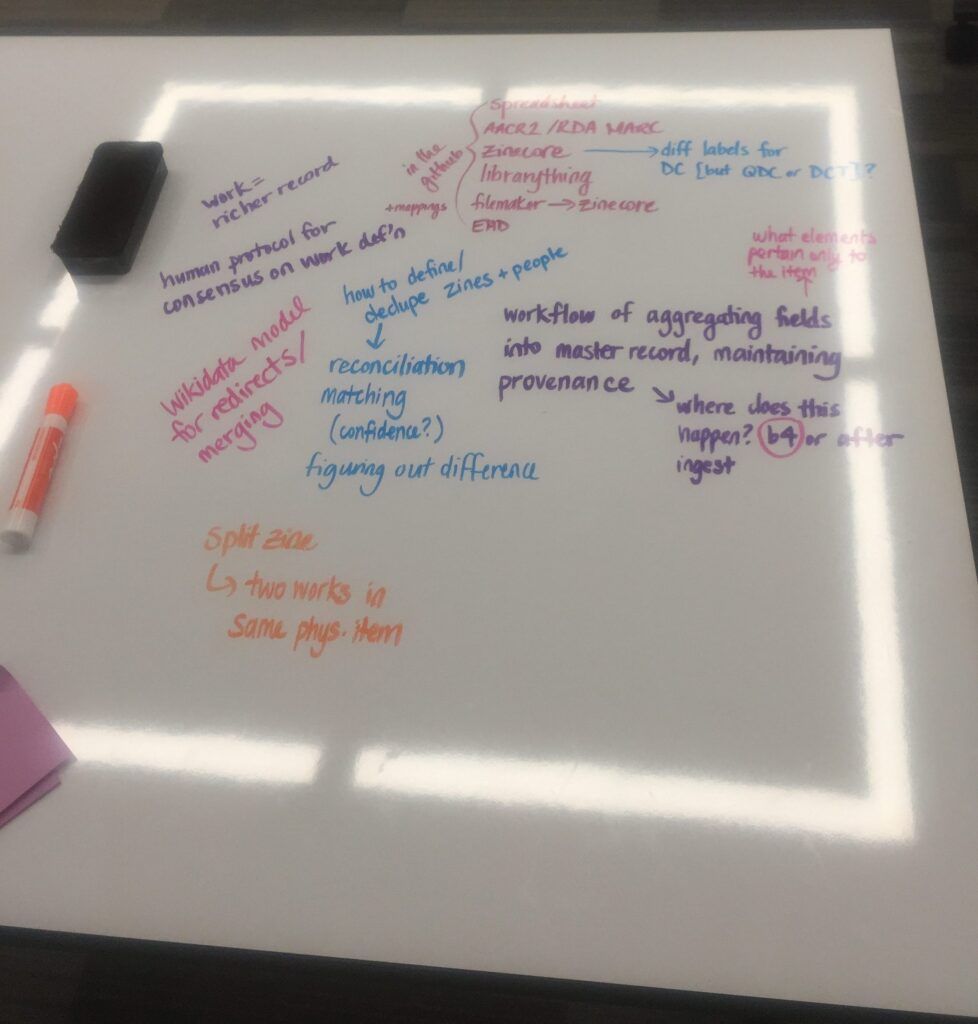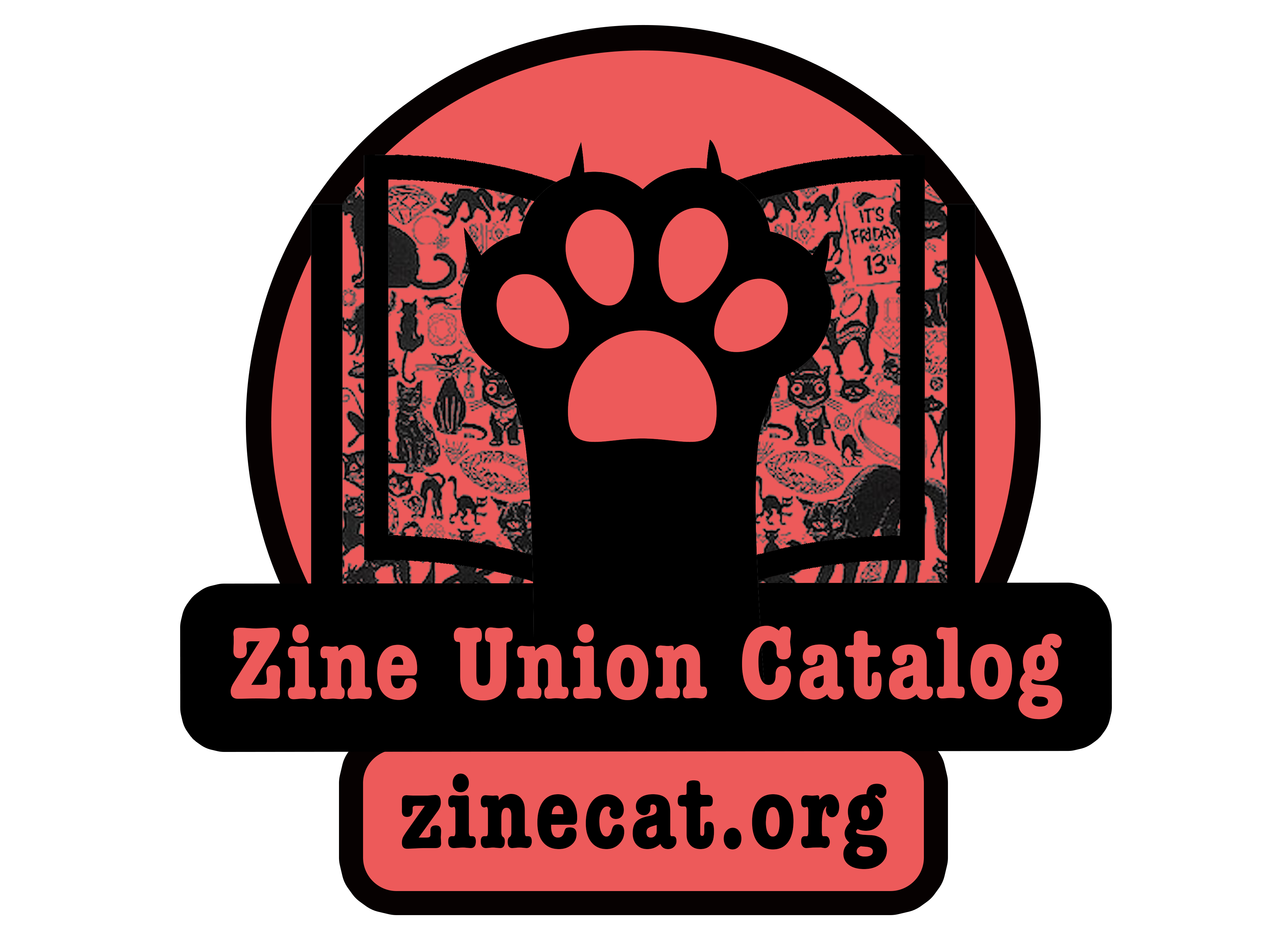Our Zine Hack/Doc day has come and gone and it was quite the day! Fifteen participants spent the better part of Sunday, October 6, 2019 embarking on a discovery of the Zine Union Catalog. This entailed conversations about user needs, metadata, shared authority, cataloging challenges, workflows, algorithms, and human interventions in any ZineCat workflow. Participants had a varying degree of familiarity with ZineCat and/or with Collective Access, the platform that ZineCat is run on, and came from a variety of institutions (including a co-developer of CA!). We also had one attendee join in from Milwaukee using Zoom and we thank them for tolerating the intermittent wifi disconnection and sometimes poor sound quality. Ultimately, it turned out to be more discovery than hack/doc, but we’re happy with the way it turned out! The following is a summary of the day’s events.
We had been in planning mode for the event since we first applied for a grant from our MADH program at the CUNY Graduate Center. In January, 2019 we applied for both funding opportunities available through the GC and were awarded $1,000 (thanks MADH @GC). Although it was less funding than we applied for, we quickly came up with an alternative plan for the funds. We contracted Openflows with a portion of the funds to lead us through the discovery and also provided lunch for anyone interested in participating in the day’s event. FYI, it was a yummy vegetarian spread from The Hummus & Pita Co.
The plan was to follow the pedagogy of Islandora’s hack/doc program, but in our planning conversations with Openflows, we decided to do more of a discovery session. According to an article in IT Next, discovery “is a process supported by the session of meetings between the project team and client to understand the client’s business, its goals, strategy, how the operation process goes and so on. This is the act of gathering key project information so you can gain a high-level understanding of the project. In most cases, this is done by getting the answers to specific questions. Lottie (Charlotta) Beavers and Eric Goldhagen from Openflows Community Technology Cooperative led us through the day’s questions:
- What metadata fields should represent any particular zine as an authority for that zine?
- Are zines catalogued as monographs or serials?
- How will users engage with ZineCat and what are their user profiles?
We spent the better part of the day very involved in metadata existentialism. It might be no surprise to some readers, but describing things in a controlled manner is not easy and despite the many rules we’ve come up with to describe and organize things, there’s still lots of room for discussion. Especially when it comes to zines that often don’t behave in a controlled, organized way (which is one of the many reasons that zines are an exciting medium). Flexibility in description is essential and perhaps we need to continue to think through our process of description to determine what is authoritative information about any particular resource! Zine titles may change over the years, they’re not always published according to a set schedule, author names may change, and they may often be about many subjects at once. Thus, describing them consistently can be a fun challenge. One Tweeted quote from the day claims “records can be complex and inclusive while still being helpful and legible.” Ultimately, we did not decide on what metadata fields will be assigned as the authority for any one zine (maybe there are none), aside from the unique ID assigned to each zine, but it should become clearer as the collections discoverable in ZineCat grow. It is clear that there will be a continued need for human intervention to clean up the catalog, but we will work on automating our workflows as much as possible.

The consultants have confirmed that we are ready to begin ingesting larger sets of records, so that’s where we are headed to next. In the next few weeks we will be adding more current and complete collections from ABC No Rio, Barnard, Carnegie Library of Pittsburgh, Denver Zine Library, QZAP, and the Sallie Bingham Center for Women’s History & Culture.
